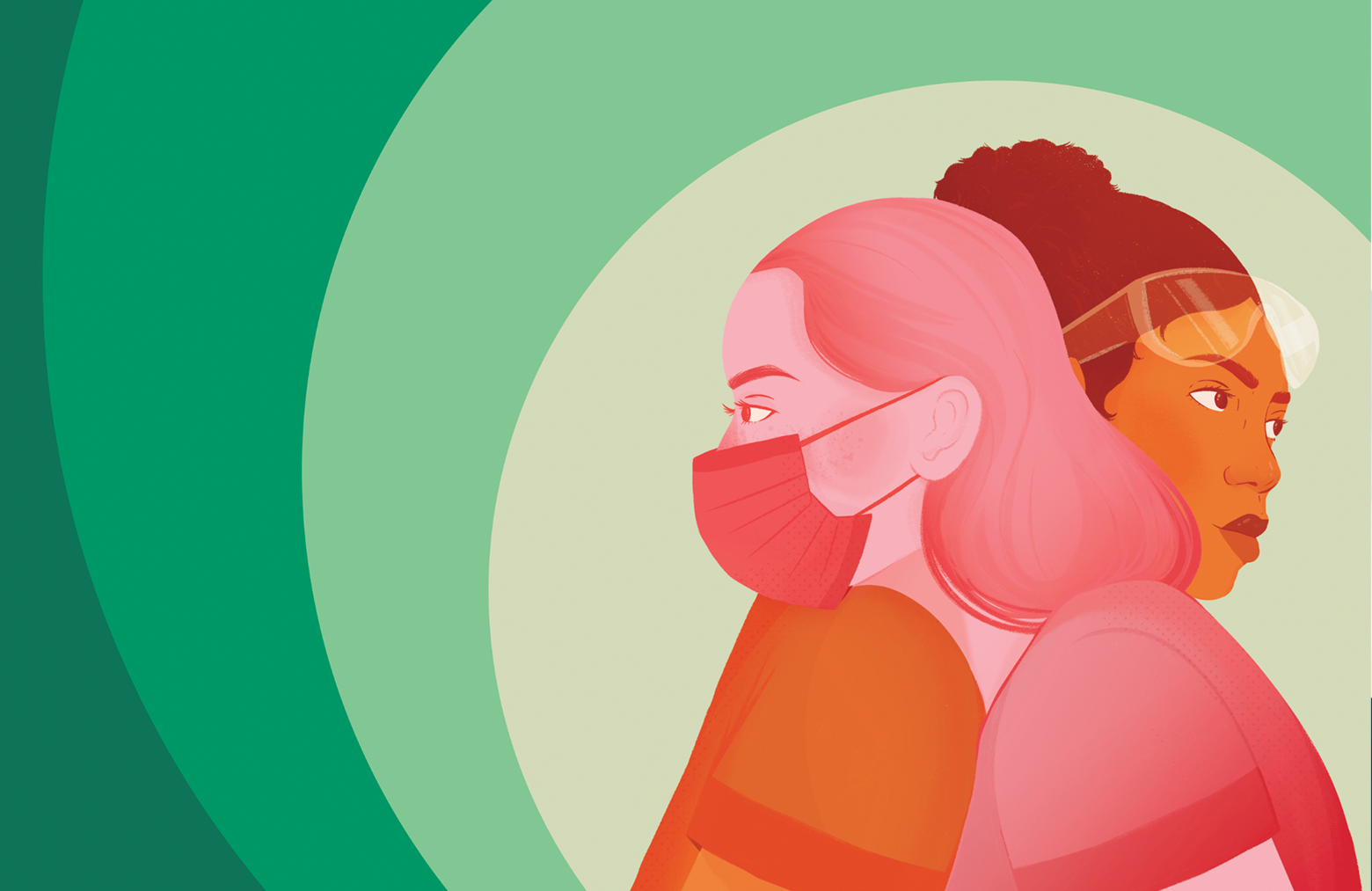Viewpoint expresses the particular view of contributors and does not necessarily reflect the views of The Philanthropist Readers are invited to respond to articles in this section. If appropriate, their views will be published.
This article was developed from a presentation to the Empire Club in Toronto on November 1, 1984.
This year is the fortieth anniversary of D-Day and, on the sixth day of June, like tens of thousands of other Canadians, I found my mind wandering back to that exciting and, if I may use an overworked adjective, “historic” day in 1944 when my regiment, the Fort Garry Horse, landed on Juno Beach in Normandy. The First Canadian Corps was part of the Second British Army under General Dempsey and there followed the slow rolling back of the German Army culminating in its total surrender and the return of freedom to Western Europe.
During that war, it was so easy to understand one’s duty to one’s country: it was to expend all one’s efforts to contribute in one way or another to the war effort. The whole of Canada had two objectives-to win the war and to preserve the democratic institutions in the world so that free men and women could live in dignity and peace.
While we achieved the first objective, I’m not so certain about the second. Over half of the world’s people live under tyranny and, in the democratic portion, millions live in conditions none of us would find acceptable for ourselves or our families.
In North American and in most other parts of the free world, we have embraced capitalism as the economic instrument for achieving that equitable distribution of the world’s goods which is essential to a democratic society. At the present time, I can see no other course for this country, or the other democratic industrial states, to follow. I do not believe, however, that we will be successful in achieving a fruitful life for all Canadians, nor for that matter, will we be able to preserve the system itself, if we do not make certain that the system provides an equitable distribution of wealth and services. Capitalism must not be defined as “security for the rich and private enterprise for the poor”.
Unless they enter public life, individual Canadians may not be able to play a significant role in ensuring a fair distribution of wealth. Everyone, however, can assist in providing essential services for the less fortunate. The professional and business classes who enjoy a large share of our wealth must recognize that they, in particular, have not so much an obligation, but an opportunity, particularly in this field, to give leadership to their fellow Canadians in peace, in the same manner, if not to the same extent, that they had when Canada was at war.
My simple thesis is that it is our patriotic duty (which, if discharged, will turn into great fun and enrich our lives) to do more than pursue our gainful occupations and provide for our families. This obligation/opportunity can be found in several ways. First, through volunteer service to the community at whatever level, and for whatever philanthropic, educational or cultural cause that appeals to us, and secondly, and note it is and not or, through donating a fair portion of our incomes or corporate profits to philanthropies to a far great extend than we, and other Canadians, have in the past, and finally, by devoting a good portion of our time to supporting those in public life or, better still, by choosing public life as a career.
Let me deal with a public career first. For farlonger than I am prepared to admit, I have held various offices in the Progressive Conservative Party both in Ontario and in Canada. This has given me an opportunity to realize the tremendous sacrifices that are made, not only by those who hold public office, but also by senior career public servants.
These sacrifices include the impairment, or in many cases the destruction, of promising and lucrative careers in the private sector; living at standards far below those they could have achieved in private life; and having their motives and actions constantly called into question, often by journalists who have neither the training nor the time to enable them to understand the issues. Finally, public servants, elected or otherwise, must suffer the interruption, and often destruction, of family life by the demands made on those who serve their cities, provinces or country.
In today’s society, it is in politics, not in the church, that standards of morality are set. It is not only in the marketplace but in legislative bodies that economic decisions affecting all of our lives are made. Surely, therefore, we should accord both a high standard of respect and a comfortable living to those whose actions have so great an effect on our present and our future.
On the whole, we have been most fortunate in Canada, both in the standards of conduct and the intelligence shown by those people who have chosen public life, but like everything else (except my wife’s cooking), there is room for improvement. That improvement requires a greater degree of respect and understanding for those in public service. This can only be achieved through a greater degree of citizen participation in the public process; a participation that goes beyond joining a ratepayers group when your community is threatened.
Nevertheless, participation in public life is not the principal thrust of my call to greater patriotism in peacetime. There are two other matters which I feel are the duty of all Canadians, especially those in business and the professions: volunteer activity in private, social, cultural, religious and educational organizations and a greatly increased level of philanthropic donations.
The relatively few Canadians who offer voluntary service and the low level of Canadian private and corporate philanthropic contributions are both cause for serious national concern.
The emergence of many new voluntary associations in the past two decades, as well as new ways of thinking about philanthropy, and the broadened activities of philanthropic organizations, are indications of the interest many Canadians have in new and different social, educational and cultural causes such as correction, distress centres, day care centres, conservation organizations and museums and art galleries, as well as the traditional religious, health, and educational causes. Nevertheless, the evidence is incontravertible that participation in all of these philanthropic endeavours is limited to a small percentage of Canadians, particularly a small percentage of the professional and business communities.
Yet, if the private sector does not recognize and meet its obligations in these important areas, it is obvious that the result must be an all-pervasive state which will endanger the continued existence of the capitalist system.
An article by Joseph Berman and Edward Waitzer in the Winter 1982-83 issue of The Philanthropist
puts the case for volunteerism and private charity succinctly:
Private charitable action has certain qualities which are indispensable to an enlightened and free society. Private charitable institutions can provide freedom of choice and competition. They can set standards and experiment in areas too controversial for governmental bodies. Their independent status allows them to monitor and evaluate publicly governmental performance in the various areas of health, education, culture and social service. They can fill gaps in publicly provided services and offer a means for greater citizen participation in social action. They can help safeguard intellectual and artistic freedom and civil liberties. Finally, they engage in the definition and preservation of society’s highest values, especially those of a spiritual and religious nature.
There are many patriotic Canadians who would strongly endorse this assessment of the value of private charitable activities. Unfortunately, they do not represent anything like a majority. The statistics show a startling decline in philanthropic activities during the past decade. Today, only 15 per cent of adult Canadians donate their time to volunteer causes. That time varies from a weekly average of2.2 hours in Prince Edward Island to 4.2 hours in British Columbia; an average ofless than three hours a week for the country as a whole. This means that we are faced with an expanding field of social, cultural and philanthropic needs and a shrinking work force. When you add to this the sobering fact that the last decade has brought a realization of how finite are government resources in these same fields, you get some idea of how serious the crisis is.Moreover, we have not yet, unfortunately, touched upon the most serious problem facing Canadian philanthropic organizations—the unsatisfactory level of contributions made by both individuals and corporations, a selfishness which statistics show is on the increase.
Consider these statistics:
• in 1960, 24.5 per cent of Canadian taxpayers claimed charitable donations of more than $100; in 1979, the percentage was 10.3;
• only eight per cent of Canadian corporations claim charitable deductions on their tax returns and 50 per cent of all corporate donations come from the top one per cent of corporations;
• between 1958 and 1980, individual donations in Canada dropped from two per cent of assessed income to 0.5 per cent;
• between 1958 and 1980 corporate donations dropped from one per cent of pre-tax profits to0.5 per cent, only 60 per cent of the comparable American corporate figure.
Individuals and corporations alike have failed to seize the opportunity to serve and enrich the society of which they are a part. Indeed, if it were not for the leadership of a small number of large public corporations and a few foundations, most Canadian charitable, social and cultural organizations would be in dire straits.
This startling lack of largesse gives rise to two questions: why are Canadians so selfish and what are the consequences of that selfishness?
It is my view that the answer to the first question is simply that we live in an increasingly materialistic age. Pervasive communications and their accompanying advertising messages have turned all of us, and particularly those between 25 and 40 years of age, into a totally consumption-oriented societystereos, clothes, cars and gourmet food are far more important to us than the wellbeing of our fellow citizens. The sad regression has been from”me too” to “me first” and finally, to “me”.
To put the crisis in terms we can all understand: only one Canadian in 10 is prepared, once a year, to give up the (tax-deductible) price of a dinner for four to help a neighbour. Although the government allows deductions from income tax for gifts to philanthropies of up to 20 per cent of annual income, Canadians actually make average donations of only one half of one per cent of their incomes.
The other major factor leading to the decay of our former sense of social conscience is that society now looks to governments to do everything—the age of personal responsibility is past.
What will be the consequence of this sad transition from old-time values to modern materialism? I foresee the following very specific consequences:
• research into the causes and cures of many diseases will be seriously hindered;
• local community organizations protecting the social fabric of our cities will cease to function;
• our universities will be stultified;
• our museums and art galleries will become second rate;
• mentally disturbed children will become mentally disturbed adults;
• the aged will live in lonely isolation; (Incidentally, pensioners give twice as well as any other class.)
• our churches will fall into disrepair;
• our wetlands, bird sanctuaries and other wildlife preservation areas will gradually shrink; and
• many orphan boys and girls will grown up without the stabilizing influence of a Big Brother or Big Sister.
While the specific losses, of which I have given a few examples, will be unfortunate, the harm to our democratic institutions and the fundamental values which underlie them will be far more serious. The personal involvement and social participation of individual citizens are fundamental requirements of a successful democratic society. The sharing of altruistic effort provides a bond which binds a community and strengthens its human values. To quote the National Advisory Council on Voluntary Action:
Voluntary action encourages Canadians to develop and express a sense of responsibility for themselves, their communities and their world and to express this responsibility with concern and compassion. In short, voluntary action helps Canadians grow as citizens. It also brings to bear on social and political activity certain viewpoints and the concerns which would otherwise be ignored or not heard.
The right to participate in, and help finance, the formal and informal political process as well as the social and educational process is not available to the great majority of people in the world. It is available to Canadians, and although I have expressed my belief that such participation is a duty, it is, in fact, a rewarding opportunity. Let us hope that more Canadians will take advantage of that opportunity.
EDWIN A. GOODMAN
Member, The Ontario Bar


